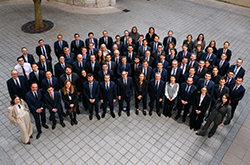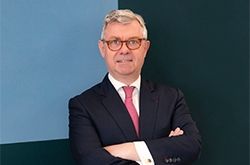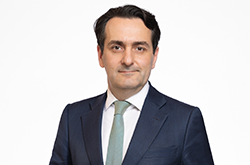Women and finance, a story to be told
Isabelle Jacob Nebout, Head of Wealth Management and Nicolas Mougeot Head of Global Trends & ESG Advisory at Indosuez in Switzerland featured in Agefi Indices magazine.
Faced with major societal changes, banks have understood that they need to adapt. Most of them have developed online offers to meet the needs of a younger clientele and millennials who prefer to rely on their cell phones rather than bank advisors. Beyond age, the clientele is also becoming more feminine, and in this respect, banks still have way to go.
Society has certainly been very slow to evolve in terms of access to banking services for women. This year, Switzerland celebrated the 40th anniversary of the introduction of the right to vote for women at the federal level. In 1982, men and women were finally on an equal footing at the ballot box, but it was not until 1988 that this equality was extended to the family home. On January 1, 1998, Switzerland revised its matrimonial law to eliminate article 200, which assigned the administration of matrimonial property to the husband. Therefore, married women have been able to open a bank account or obtain a credit without their husband's agreement only from that date.
Today, significant efforts are still needed to accelerate the development of "women's banking", a significant opportunity for banks, especially private banks. According to a study by the Boston Consulting Group (BCG), women hold one third of the world's wealth. While parity has not yet been achieved, their wealth is growing faster than that of men. BCG expects the growth of women's wealth to increase by more than 7% per year over the coming years, compared to only 5% for men. Behind these global figures, there are obviously geographical and cultural differences, and North America is ahead of other regions such as Africa and the Middle East but also Europe.
The range of financial services and products must therefore continue to adapt to the aspirations and sensitivities of women clients. Life events that have a different impact on men and women, such as divorce, widowhood, maternity, but also salary inequality, often require specific treatment and an adapted financial planning offer.
The banker's role therefore extends beyond a purely financial approach. In particular, they must be able to support their women clients when a life event makes them vulnerable and they find themselves alone, for example, at the head of significant assets that they have not had the opportunity to manage until then.
Women also sometimes have other aspirations regarding their investments. Numerous academic studies have pointed out that women tend to invest for the longer term than men, and that they allocate less capital to risky assets. In addition, they show a much greater appetite than men for socially responsible investments, a theme that has experienced phenomenal growth in recent years.
Also, access to a better financial culture for women remains a major issue. Women are under-represented in economics and finance courses at university, which has two main consequences. On the one hand, this creates an imbalance in financial literacy between men and women and, on the other hand, it partly explains the fact that women make up only 25% of senior bank staff in the US.
However, new generations of women seem to be better trained in advanced financial topics. For women entrepreneurs, building up private wealth over time is an aspect they do not want to leave out.
A comparative study carried out in 2021 within Indosuez Wealth Management in order to better understand the expectations of its female clientele has highlighted certain specificities. In particular, it shows that women do not hesitate to discuss matters in greater depth with their advisor. They do so for a better assessment of the intrinsic risks of the planned investment or the level of leverage associated with it, a better understanding of the type of products and their environmental and social impacts, or an optimisation of the management of their portfolio. Their investment decisions are also often made through a broader reflection that takes into account the family context, the organisation of assets, their protection and the impact for future generations. Finally, the study shows that women are more inclined than men to recommend their bank and to take into account the advice of their acquaintances.
To meet all these new expectations, it is therefore essential to employ a variety of profiles in the front office teams (bankers and advisers), not only in terms of experience or skills, but also in terms of geographical origin and gender mix, in order to better address the needs and expectations of all customers. Internal and external training and awareness-raising on specific topics remain important to keep up with the challenges of the business.
Published in Agefi Indices on 14/10/2021
October 25, 2021




